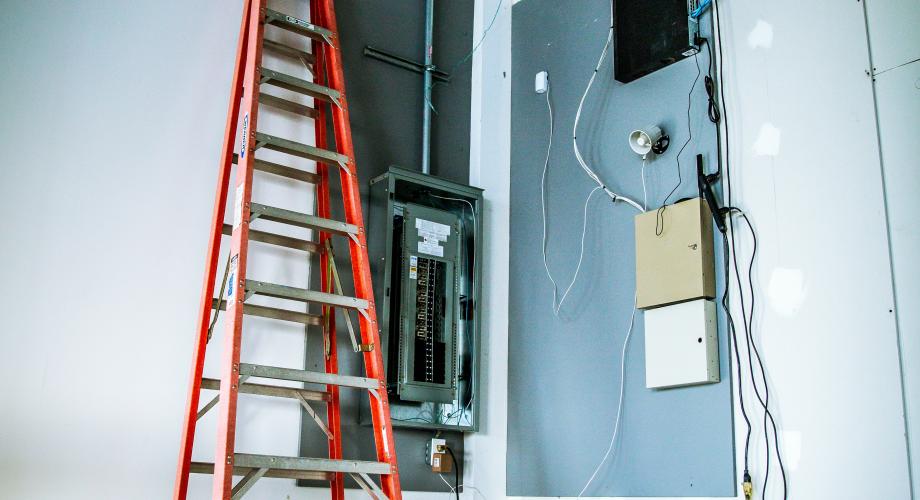Shrewd apartment owners understand that the greatest financial value in an apartment transaction can be had during the acquisitionnot the exit.
Industry veteran Ian Mattingly, President of LumaCorp in Dallas, speaks from experience. He is part of a management team that carries more than 90 years of investor experience when it comes to applying due diligence. LumaCorp owns 24 communities that include over 6,000 total units. It has made 45 acquisitions during the past 32 years.
Mattingly is one of three panelists who will speak about how to avoid nasty surprises during the acquisition process at a session at MAXIMIZE: 2016 Multifamily Asset Management Conference Oct. 17-19 in the San Diego area.
When we begin our talks with new investors, we like to tell them that we have a lot of experience in making mistakes, Mattingly says. We tell them not to expect everything that happens when buying and selling apartments to work out perfectly. We have made our fair amount of mistakes. But what we also tell them is that we wont make the same mistake twice.
Mattingly, whose firm focuses on Class B and C properties in Texas, will share knowledge about the process that is applicable to any apartment market. Among his focuses will be re-inspections, city and county governments, building codes, fire codes, lease addenda, repairs and resident audits.
We specialize in markets where the bulk of the apartment product was built in the 1980s. he says. So weve been buying 80s-vintage properties for over 20 years. Of course, those properties are a lot older now than they were 20 years ago.
Inspections.
Its easy to overlook issues with city codes and inspections during due diligence. Youll find that as some of these buildings get older, some [inspectors] want to crack down on them even more, he says. Some choose to be more nit-picky than others, or they choose to be nit-picky about different things.
Mattingly recalls asking the seller of one community his company purchased if his property had passed inspection. They told us they had, but when the city showed up for the re-inspection, we found they had demanded $30,000 to $40,000 in repairs that we didnt know about. Ultimately, the city worked with us on getting these done, but the bottom line was that we had to do it. We hadnt budgeted for it. We learned from this that you must always obtain a copy of the current code and fire inspection report from both the seller and the city.
Fire Codes & Building Codes.
Apartment owners can expect that certain cities will enforce the international fire codes, according to Mattingly. But then they end up adding to that list of codes. Usually, they will dial back on these codes for existing structures, but you just dont know.
One time the fire marshal made a big deal about the size and shape of landscaping and shrubs near apartment windows. We went back and forth about it, and ended up having to pay nearly $30,000 to have things either removed or replanted.
Owners must stay abreast of any changes in code. Some cities will make a change and not include a phase-in period or a grandfather clause, he says. That can get expensive.
In one case, the city of Dallas was concerned about the height of speed bumps placed throughout apartment communities, because they had found some bumps to be too high and were damaging the bottom of their fire engines on response calls.
The new code said that the bumps peak height could not exceed 3 inches, he says. This was important to them to protect their fire equipment, but it was tens of thousands of dollars to us to shave the speed bumps, and there was no phase-in period allowed to budget and plan for the expense.
Resident Screening.
Mattingly related a story about his company purchasing a community without doing sufficient verification of their residents income and time on the job.
We were buying from a major operator, and knew their screening criteria was sound, but we were purchasing a community that had a lot of residents who worked in retail and whom it turned out didnt have good job tenure.
This was around 2008 and the economic downturna time when a lot of employees were being laid off, starting with the least senior. These people had trouble paying the rent or moved out. Our occupancy rate suffered and delinquency soared. Now we check the resident profile much more carefully.
Learn More at MAXIMIZE
Avoiding Nasty SurprisesAcquisition Due Diligence: Humorous and Sad Tales of Past Buys
Monday, Oct. 17, 4 p.m. to 5:15 p.m.
Due diligence is more than a checklist, and done well by only a few. Well ask experienced presenters to tell stories that illustrate the finer points of due diligence, and their mistakes and omissions of the past. The Panel:
Pauline Thude-Speckman, Owner, Productive Property Mgmt./Meridian Investments
Scott Wilkerson, Chief Investment Officer, Ginkgo Residential
Ian Mattingly, President, LumaCorp Inc.
James Davis, CEO, InfoTycoon (Moderator)
